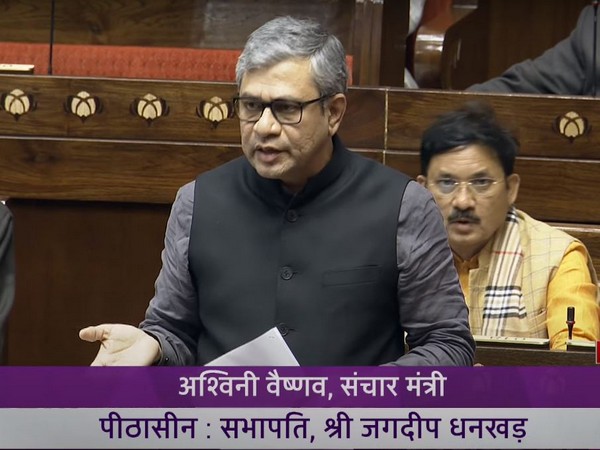The Rajya Sabha on Thursday passed the Telecommunications Bill, 2023 through voice vote to amend and consolidate the law relating to the development, expansion and operation of telecommunication services and telecommunication networks as well as assignment of spectrum.
The Telecommunications Bill, 2023 was passed after a short debate as the majority of the opposition members did not attend the House proceedings.
Union Minister Ashwini Vaishnaw had moved the Bill in the House for its passage. The Bill allows the Centre to take possession of a telecom network in case of any public emergency or in the interest of public safety. The Bill was passed by the Lok Sabha on Wednesday.
Piloting the Bill, Vaishnaw said it would promote structural reforms in the telecom sector and provide for the allocation of spectrum to satellite communications companies through the administrative method.
The Bill seeks to replace the Indian Telegraph Act, of 1885 and the Indian Wireless Telegraphy Act, of 1933.
Once the bill is approved by Parliament, authorisation will be required by the companies from the central government to establish and operate telecommunications networks, provide telecommunications services, or possess radio equipment.
Spectrum will be allocated through auction, except for specified entities and purposes for which it will be assigned administratively.
Telecommunication may be intercepted on specified grounds including the security of the state, public order, or prevention of offences. Telecom services may be suspended on similar grounds.
The government has proposed a cap of Rs 5 crore on penalties imposed on telecom operators which was Rs 50 crore earlier per circle implying a maximum penalty of around Rs 1,100 crore on a telecom company.
The Bill provides a mechanism to exercise the right of way for laying telecom infrastructure in public as well as private property.
The central government may provide for measures to protect users such as requiring prior consent to receive specified messages, and the creation of a do not disturb register.
The Bill provides that procedures and safeguards related to interception will be prescribed by the central government. It may allow mass surveillance.
The requirement of biometric verification for users may not be proportionate and hence, may infringe upon the fundamental right to privacy.
Telecommunication services, as defined under the Bill, may cover internet-based services.
The Bill vests several regulatory functions with the central government. This is distinct from sectors such as power and finance, where these functions have been delegated to the regulators.





